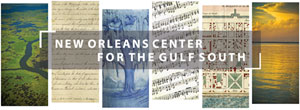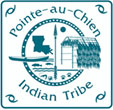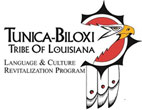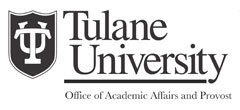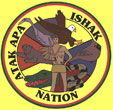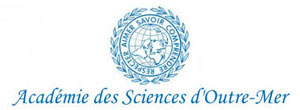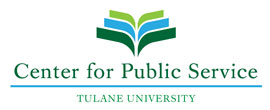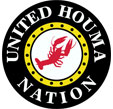New Orleans Center for the Gulf South
Dixon Hall Room #118,
Tulane University
-
Indigenous Spaces-French Expectations:
Exploring Exchanges between Native and Non-Native Peoples in Louisiana Dixon Hall Rm 118, Tulane University March 14, 2018This symposium re-examines the colonial narrative of Louisiana history and cultural heritage from Native and non-Native perspectives. While much attention has been paid to the 300-year anniversary of the founding of New Orleans, the objective of this meeting is to expand that focus and consider the lives of Indigenous communities before the arrival of Europeans and Africans, their subsequent interaction and, finally, to shift the focus to the present day and the First Nations who continue to inhabit this space we call Louisiana.
All too frequently, the colonial narrative portrays North America before the arrival of Europeans as a wild open space, sparsely inhabited by nomadic peoples. Evidence contradicts this portrayal and, instead, shows that the Lower Mississippi River Valley was populated by more than 35 Tribes living in permanent settlements at the time of contact. The region, thus, was not defined by empty places but rather by Indigenous spaces—landscape central to Native identity. The French encountered these Indigenous spaces and constructed the exchanges in a Euro-centric context. French imagination of the First People reframed Native peoples’ existence to fit quixotic notions of colonial practices which sought to impose European-style domination over the landscape. However, reality found the French frequently having to rely upon Native people for food, protection and guides while the Tribes often resisted efforts to occupy their space in a world of shifting alliances. This symposium seeks to uncover those past encounters and decolonize the narrative of Louisiana history and stimulate a more informed conversation about Louisiana’s cultural heritage and its Indigenous people today. Looking forward, many of Louisiana’s Indigenous people live on the frontline of coastal erosion and their input into not only stopping this destruction, but also contributing to the rebuilding of this vulnerable coastline, is critical to saving the land for all of us who call Louisiana home.
-
Schedule Please note we are considering filming these sessions.
8:30 Registration: Coffee and Tribal Display
9:00 Opening Remarks
Rebecca Snedeker, Co-Chair, New Orleans Center for the Gulf South, Tulane University
Pierre Geny, Académie des Sciences d’Outre Mer
Denis Vialou, Académie des Sciences d’Outre MerMorning Panels in English
9:20 Landscape: Delta Geography: Resources and Opportunities in a Dynamic Environment, 7200 to 300 Years Before Present
Richard Campanella, Tulane University
9:40 Archaeology: Stories of What Lies Beneath the Land and the Sea, Collaboration between Tribes and Archaeologists
Moderator: Laura D. Kelley, Co-Chair, Tulane University
Panel:
John Barbry, Tunica-Biloxi Tribe of Louisiana
Chris Rodning, Tulane University
Dave Watt, Tulane University10:30 History: French Dreams and Indigenous Designs: How Native People Shaped the Development of Early Louisiana
Elizabeth Ellis, New York University, Citizen of Peoria Tribe of Indians of Oklahoma
11:00 Soundscape: Indigenous Contributions to the Musical Heritage of Louisiana
Indigenous Musical Traditions and Cultural Interactions in Colonial Louisiana
Shane Lief, Tulane UniversityBulbancha Is Still a Place: Decolonizing the Narrative of New Orleans
Jeffery U. Darensbourg, Tribal Councilperson & Head of the Alligator Band, Atakapa- Ishak Nation11:30 Foodways: Seeds and Sovereignty
Monique Verdin, United Houma Nation, New Orleans Center for the Gulf South, Visiting Artist
12:30-1:30 LUNCH & ART VIEWING
Lunch: Barbara Greenbaum House
Lunch provided for panelists and members of Académie des Sciences d’Outre MerArt Viewing: Land Memory Bank: Sovereignty, Uncertainty & Seeding Sustainability
Art installation at the live oak tree adjacent to Barbara Greenbaum House
Monique Verdin, United Houma NationAfternoon Panels in French and English:
1:45 Afternoon Opening Remarks
Laura D. Kelley, Co-Chair, Tulane University
1:50 Academy Remarks: L’Imaginaire Français et les Amerindiens de Louisiane
Senator Jacques Legendre, Académie des Sciences d’Outre Mer
2:00 Contemporary Issues: High Water/High Stakes: Cultural Heritage and Legal Hurdles
Patty Ferguson-Bohnee, Sandra Day O’Connor College of Law,
Arizona State University, Pointe-au-Chien Indian Tribe
Presentation in French and English3:00 Roundtable: Long Memories of Living People: Cultural Heritage and Place
Moderator: Nathalie Dajko, Tulane University
Translator: Nathalie Clarke, Tulane UniversityFrench:
Theresa Dardar, Pointe-au-Chien Indian Tribe
Chief Albert Naquin, Isle de Jean Charles Band, Biloxi-Chitimacha-Choctaw Tribe
Donna Pierite, Tunica-Biloxi Tribe of LouisianaEnglish:
Principal Chief Thomas Dardar, Jr., United Houma Nation
Jeffery U. Darensbourg, Alligator Band, Atakapa-Ishak Nation4:00 Ongoing Projects: Research and Engagement Opportunities Looking Forward to Preserve the Past and to Nourish the Present
Laura D. Kelley, Tulane University
Matthew Bethel, Sea Grant, Louisiana State University
Dorothy Cheruiyot & Emily Farrer, Tulane University
Sunshine Best, Tulane University
Elisabeth Mora & Andrew Abdalian, Tunica Biloxi Language Program
Amy Lesen & Chief Albert Naquin, Tulane University & Isle de Jean Charles Band5:00 Closing Remarks
Rebecca Snedeker, Co-Chair, New Orleans Center for the Gulf South, Tulane University
5:10 Reception
-
Parking
Options for Visitors
- Visitors may purchase one-day and multi-day parking passes in the Customer Engagement office in the Lavin-Bernick Center from 8to 5Monday through Friday or online at parking.tulane.edu This option allows you to print your parking pass from anywhere.
- Visitors have the option to pay to park on the ground level or in one of the numbered spaces on the second floor of the Diboll Complex.
- Parking meters are located throughout campus in the marked spots on the campus map. Parking permits are not required when guests park in timed or metered spaces, provided the time limit is obeyed and the parking meter is not expired. Maximum time limits for parking meters are posted on each meter.
- Utilizing the ParkMobile app is also an option at metered spaces along with specially marked spaces in the Claiborne Avenue lot. Consult our parking map for more information.
- Reserved all hour spaces are clearly marked and should not be used by visitors without prior approval.
Failure to comply with parking rules may result in a citation. For additional parking information call 504-865-5441.
Disabled Visitors
Visitors are welcome to park in a Tulane handicap space when displaying their state issued disabled permit. A visitor may wish to us prior to their arrival on campus or as their first stop on campus to request assistance. Our customer engagement staff can assist you in finding the most accessible parking near your campus destination.
Please note: Your state issued permit is not valid at a campus metered space as it would be in a municipal metered space.
For more information, please visit the Campus Services website.
-
Videos from the 2018 NOCGS Indigenous Symposium: Indigenous Spaces, French Expectations: Exploring Exchanges Between Native and Non-Native Peoples in Louisiana
Opening Remarks
Rebecca Snedeker, Co-Chair, New Orleans Center for the Gulf South, Tulane University
Pierre Geny, Académie des Sciences d’Outre Mer
Denis Vialou, Académie des Sciences d’Outre MerLandscape:
Delta Geography: Resources and Opportunities in a Dynamic Environment, 7200 to 300 Years Before Present
Richard Campanella, Tulane UniversityArchaeology:
Stories of What Lies Beneath the Land and the Sea, Collaboration between Tribes and Archaeologists
Moderator:
Laura D. Kelley, Co-Chair, Tulane University
Panel:
John Barbry, Tunica-Biloxi Tribe of Louisiana Chris Rodning, Tulane University Dave Watt, Tulane UniversityHistory:
French Dreams and Indigenous Designs: How Native People Shaped the Development of Early Louisiana
Elizabeth Ellis, New York University, Citizen of Peoria Tribe of Indians of OklahomaSoundscape:
Indigenous Contributions to the Musical Heritage of Louisiana
Indigenous Musical Traditions and Cultural Interactions in Colonial Louisiana
Shane Lief, Tulane University
Bulbancha Is Still a Place: Decolonizing the Narrative of New Orleans
Jeffery U. Darensbourg, Tribal Councilperson & Head of the Alligator Band, Atakapa- Ishak NationFoodways:
Seeds and Sovereignty
Monique Verdin, United Houma Nation, New Orleans Center for the Gulf South, Visiting ArtistAfternoon Opening Remarks
Laura D. Kelley, Co-Chair, Tulane UniversityAcademy Remarks:
L’Imaginaire Français et les Amerindiens de Louisiane
Senator Jacques Legendre, Académie des Sciences d’Outre MerContemporary Issues:
High Water/High Stakes: Cultural Heritage and Legal Hurdles
Patty Ferguson-Bohnee, Sandra Day O’Connor College of Law, Arizona State University, Pointe-au-Chien Indian Tribe Presentation in French and EnglishRoundtable:
Long Memories of Living People: Cultural Heritage and Place
Moderator: Nathalie Dajko, Tulane University
Translator: Nathalie Clarke, Tulane University
French:
Theresa Dardar, Pointe-au-Chien Indian Tribe
Chief Albert Naquin, Isle de Jean Charles Band, Biloxi-Chitimacha-Choctaw Tribe
Donna Pierite, Tunica-Biloxi Tribe of Louisiana
English:
Principal Chief Thomas Dardar, Jr., United Houma Nation
Jeffery U. Darensbourg, Alligator Band, Atakapa-Ishak NationOngoing Projects: Research and Engagement Opportunities
Looking Forward to Preserve the Past and to Nourish the Present
Laura D. Kelley, Tulane University
Matthew Bethel, Sea Grant, Louisiana State University
Dorothy Cheruiyot & Emily Farrer, Tulane University
Sunshine Best, Tulane University
Elisabeth Mora & Andrew Abdalian, Tunica Biloxi Language Program
Amy Lesen & Chief Albert Naquin, Tulane University & Isle de Jean Charles BandClosing Remarks Afternoon Session
Rebecca Snedeker, Co-Chair, New Orleans Center for the Gulf South, Tulane UniversityPresenters & Symposium Staff:
Presenters
-
Laura D. Kelley
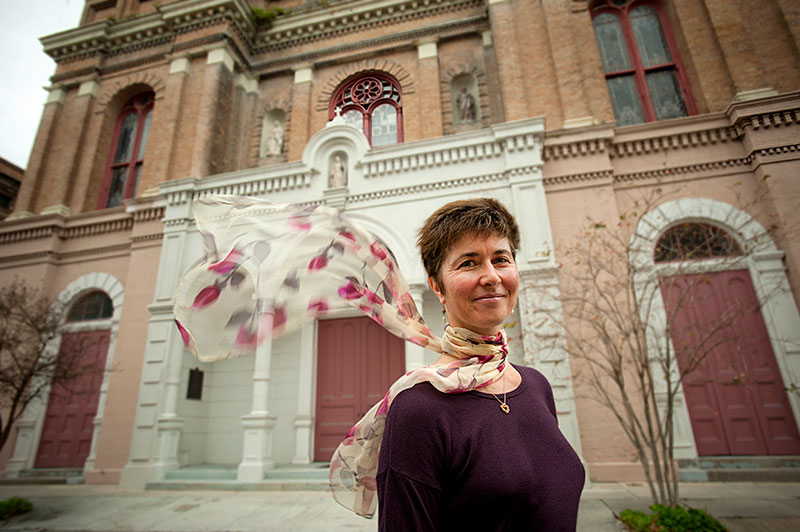
Laura D. Kelley, is an immigrant and ethnic historian at Tulane University and the Program Director of Tulane’s Summer in Dublin Program. She is also the section editor for the Louisiana Endowment for the Humanities KNOWLA Project and has published articles in Louisiana History as well as online collections. Her book, The Irish in New Orleans, released in October 2014, was the winner of the bronze medal in the Regional Non-Fiction category of the Independent Publisher Awards- IPPY- as well as a finalist for the INDIEFAB award. She is the recipient of numerous grants which have supported her research examining immigrant and ethnic communities in New Orleans as well as Indigenous communities in Southern Louisiana. Dr. Kelley has been researching the history of Native American Tribes of Southern Louisiana as well as working directly with them on a variety of projects for over a decade. Her thirteen-year collaboration with the Pointe-au-Chien Indian Tribe, a community partner of Tulane University, has resulted in numerous projects with topics ranging from coastal erosion to foodways. She is currently completing her second manuscript on the Irish, “The Greening of New Orleans” as well as “We the People: Native Americans, Europeans, Anglo-Americans, and the Complex History of Southern Louisiana from Colonial Times to the Present.” For more information please visit www.lauradkelley.com.
-
Rebecca Snedeker
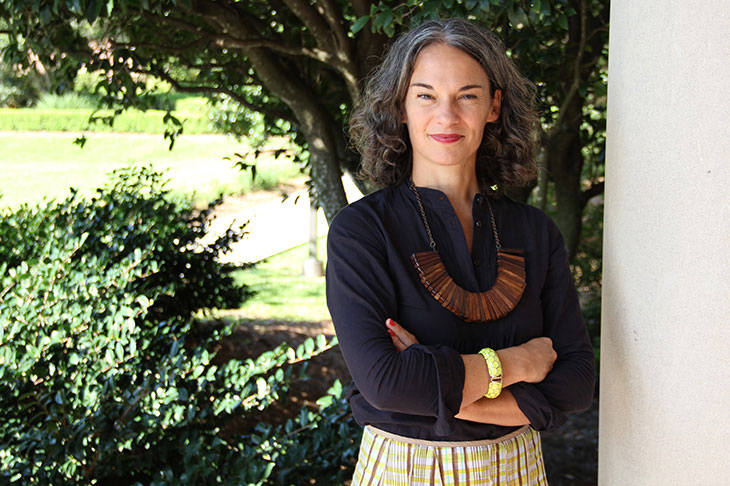
Rebecca Snedeker is the James H. Clark Executive Director of the New Orleans Center for the Gulf South at Tulane University. Prior to this position, she cultivated a body of narrative work that supports human rights, creative expression, and care for place in her native city, New Orleans. Works include Unfathomable City: A New Orleans Atlas (co-authored with Rebecca Solnit, University of California Press, 2013) and several feature documentary films, including Land of Opportunity (producer, ARTE, 2010), Witness: Katrina (producer, National Geographic Channel, 2010), and By Invitation Only (producer/director, PBS, 2007). Snedeker has served on the Steering Committee of New Day Films and the boards of the New Orleans Film Society and Patois: The New Orleans International Human Rights Film Festival. She graduated from Wesleyan University and is the recipient of an Emmy Award for “Historical Programming – Long Form” and grants from the National Endowment for the Arts and the National Endowment for the Humanities.
-
Andrew Abdalian
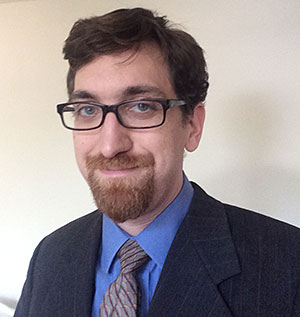
Andrew Abdalian is a PhD student in Tulane University’s Linguistics Program. He has worked with the Tunica-Biloxi tribe for three years, helping to organize existing documentation and develop tools for the teaching and revitalization of the Tunica language.
-
John Barbry
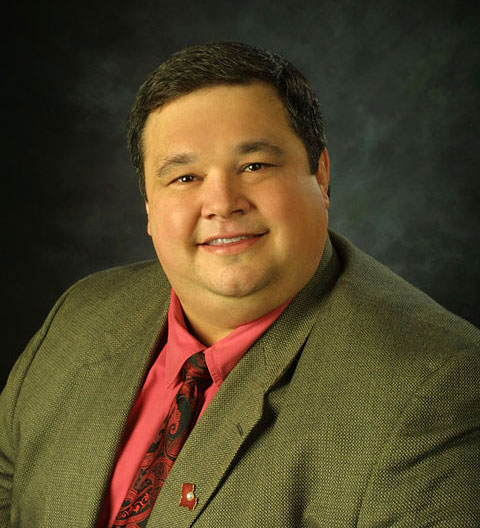
John Barbry has served as Director of Development and Programing for the Tunica-Biloxi Language & Culture Revitalization Program (LCRP) since 2014. LCRP is dedicated to enhancing the presence and vitality of the Tunica and Biloxi languages and cultural lifeways for tribal members and targeted non-member communities. Barbry oversees day-to-day administration of the LCRP including the development and implementation of education programs, cultural demonstrations, and workshops on Tunica and Biloxi history, languages, and traditional lifeways. Since 2016, John has also served as project director for a U.S. Department of Education demonstration grant that provides Tunica-Biloxi youth with the resources needed to stay in school, be college and career-ready, and graduate.
John Barbry holds a B. A. in Music Education from McNeese State University and a M. A. in History from the University of New Orleans. Barbry assisted with cataloging of the “Tunica Treasure” shortly after the collection was repatriated to the Tunica-Biloxi and prior to its return to the reservation from storage at the Louisiana State Museum in New Orleans. He then served as Research Supervisor in the manuscripts division at the Historic New Orleans Collection. Barbry was the first Native American appointed archivist at the Smithsonian Institution’s National Museum of the American Indian in 1993. Prior to his current responsibilities, Barbry worked 20 years in casino marketing and management in the Louisiana and California. John has been chairman of the Tunica-Biloxi Pow Wow Committee since 1995.
-
Sunshine Best
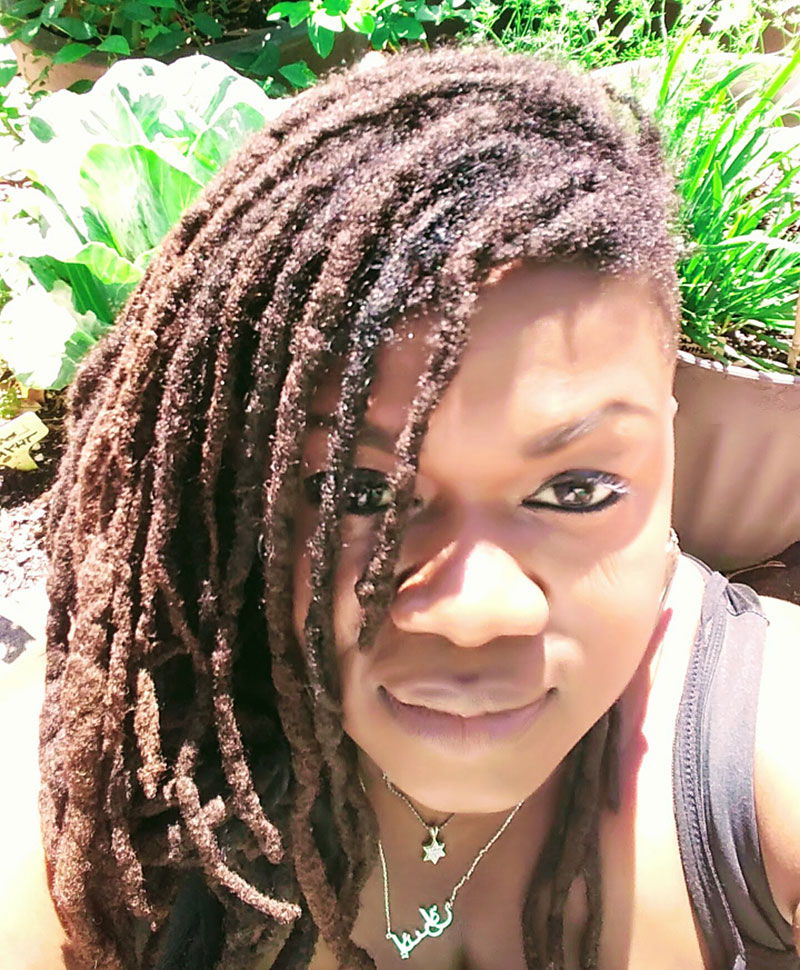
Sunshine Best, a Health & Wellness graduate student at Tulane University, who specializes in Medical Anthropology & Ethnobotany. As a Caribbean-Canadian, who has traveled globally to study ethnobotany throughout the African diaspora and colonized indigenous communities of, and around the Tropics, she can relate to the value of traditional plant knowledge and has witnessed its loss as generations pass. Sunshine is working to develop a contemporary mobile solution (an app she calls ‘AmnAya’) that preserves traditional plant knowledge through recording sustainable growing techniques, recipes, folk usages as well as to pair each with existing western scientific studies while existing to defeat biopiracy. This massive undertaking to create an online version of an ‘Ethnobotany-focused Wikipedia’ meets ‘Google for Gardeners’ is still in development. Sunshine seeks feedback from tradition-bearers and members of Indigenous communities, peoples of African-Diaspora and other tropical communities whose cultures have experienced traditional plant knowledge loss, and/or intersected with European colonization. The aim is to create a resource that protects, honors and serves the public health goal of preserving cultural plant usage and their stories for future generations.
-
Matthew Bethel
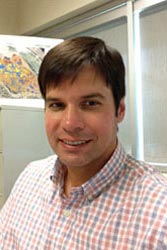
Dr. Bethel is the Associate Executive Director of Research for Louisiana Sea Grant. He has 20 years of experience in the application of geospatial technology, which includes remote sensing and geographic information systems, in multi-disciplinary research that addresses data and information needs for combined social and ecological decision support systems. For the past 10 years, Dr. Bethel has focused his efforts on working with coastal communities in Louisiana to enhance coastal hazard mitigation and restoration planning processes through collaborative partnerships and interdisciplinary research. This work centers on developing visualization tools that utilize both science-based information and the traditional ecological knowledge (TEK) of local partners in a complementary way to inform local, state, and regional-level decision-making.
-
Dorothy Cheruiyot
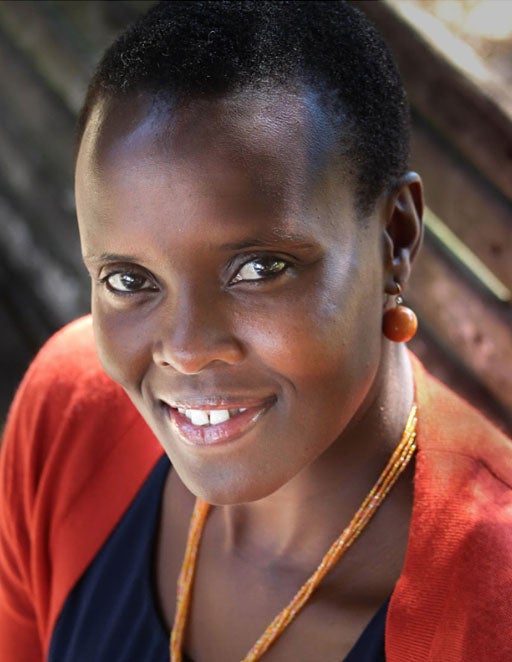
Dorothy Cheruiyot is a professor of the practice in the Ecology & Evolutionary Biology Department at Tulane. Her focus is in plant and animal interactions, as well as elemental plant defences against herbivores. She teaches diversity of life, plants and human affairs, plant biology and adaptation, conservation biology and entomology courses. She is currently designing a service learning component for the plants and human affairs course that would focus on the ethnobotany with indigenous communities.
Dorothy received her B.Sc. in biology and M.Sc. in environmental science from Columbus State University in Columbus, GA and PhD in biological sciences from Auburn university, Alabama.
-
Nathalie Clarke
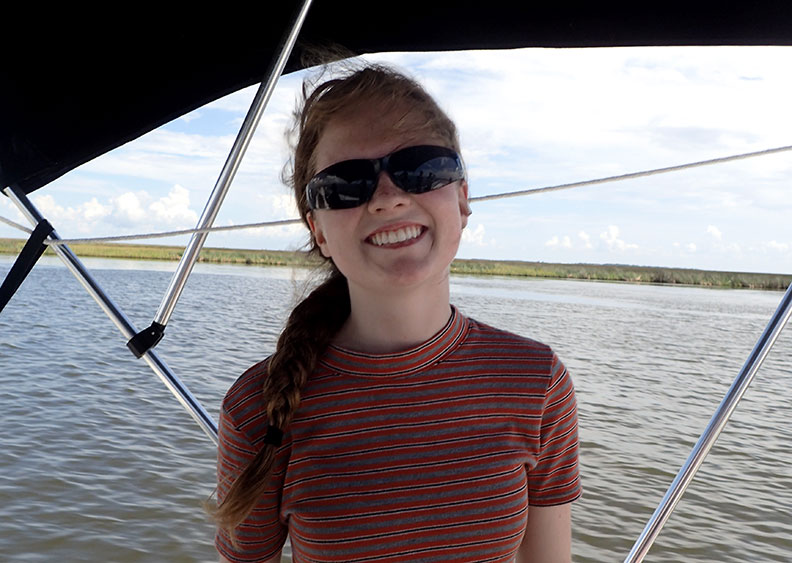
Nathalie Clarke was born in Philadelphia, raised in both Paris and Narbonne, France, and she now attends Tulane University. There, she is pursuing a double major in Ecology and Evolutionary Biology (EBIO) and Anthropology. In addition to her course work, Ms. Clarke currently tutors French and holds lab assistant positions in the EBIO department and works at the New Orleans Center for the Gulf South. She has received grants, including the International Research Experience for Students fellowship, to support her STEM related research activities. In addition, in 2017 she was awarded a research fellowship to continue her archival and translation work with the Pointe-au-Chien Indian Tribe which she started in 2016. Although this fellowship has officially ended, Ms. Clarke is continuing her work with the Tribe on a pro bono basis.
-
Nathalie Dajko
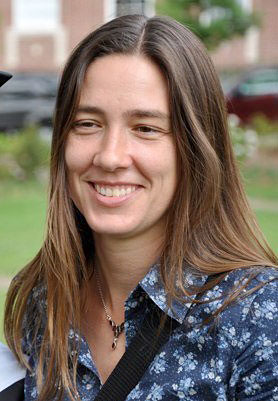
Nathalie Dajko is Assistant Professor of Anthropology at Tulane University. She studies language variation, language contact, and language revival in Louisiana, focusing on both English and French. She has conducted research across South Louisiana, particularly on the French spoken in Terrebonne and Lafourche Parishes.
-
Chief Thomas Dardar
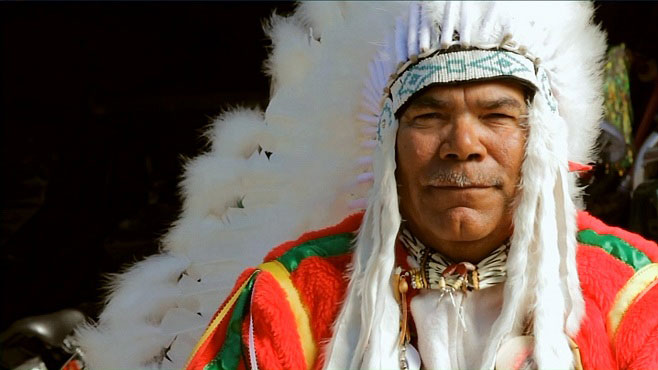
-
Theresa Dardar
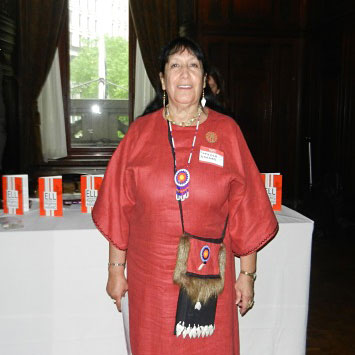
Theresa Dardar is a resident of a small American Indian community of Pointe-aux-Chenes in Lafourche Parish, Louisiana, one of the most fragile coastal areas in the world. She is a strong local leader advocating for the restoration and protection of not only the ecosystem of the Gulf of Mexico and its coastal areas, but also for the people and communities who call coastal Louisiana home.
As a member of the Pointe-au-Chien Indian Tribe, she is a powerful voice for her community, serving as a representative and spokesperson for her Tribe at local, state, national and international forums, such as the United Nations’ Human Rights of Indigenous Peoples Conference. She has participated in the Intertribal Agricultural Council and has represented the Gulf Coast in various capacities
She works as the Diocesanerican Indian liaison at the Catholic Diocese of Houma-Thibodaux and serves as President of St. Charles the Roch, Kateri Circle, which is a branch of the Tekakwitha Conference. She is a board member of South Louisiana Wetlands Discovery Center and Go Fish, a multi-parish alliance of fishing families. Theresa also serves as the President of First Peoples’ Conservation Council and is a member of The Grail, a movement supporting the human rights of women. Theresa has been a participant/leader in Church Women United, an ecumenical women’s movement that fights against racial prejudice.
She spends most of her time traveling between political, professional, academic and organizational realms to voice justice concerns for her Tribe and for the greater Native community. When she does find herself at home, Theresa enjoys cooking special local bayou dishes and being out on the water and shrimping with her husband, Donald.
-
Elizabeth Ellis
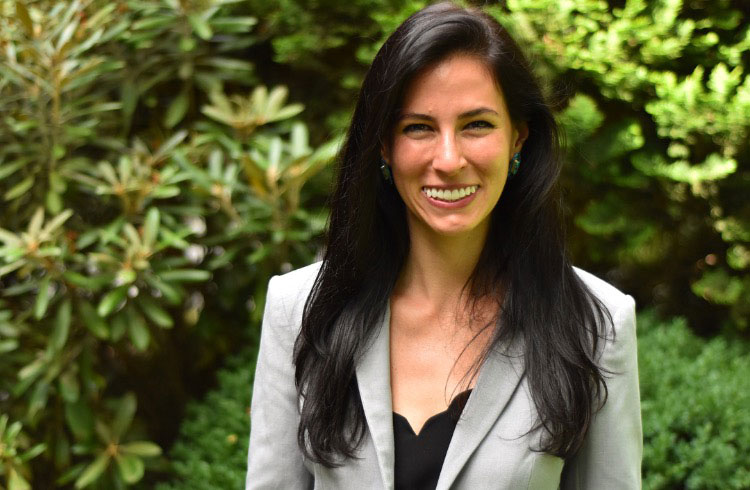
Elizabeth Ellis is an assistant professor of Native American and Early American history at New York University. She received her MA and PhD from the University of North Carolina at Chapel Hill and her BA from Tulane University. Prior to joining NYU Liz was the Barra postdoctoral fellow at the McNeil Center for Early American Studies and a visiting assistant professor at the University of Pennsylvania. Liz’s current book project investigates the histories of Louisiana’s small Native American polities, the “Petites Nations,” during the eighteenth century. Her work analyzes the ways these nations shaped European colonization efforts and influenced the lives of all of the inhabitants of the Lower Mississippi Valley.
-
Emily Farrer
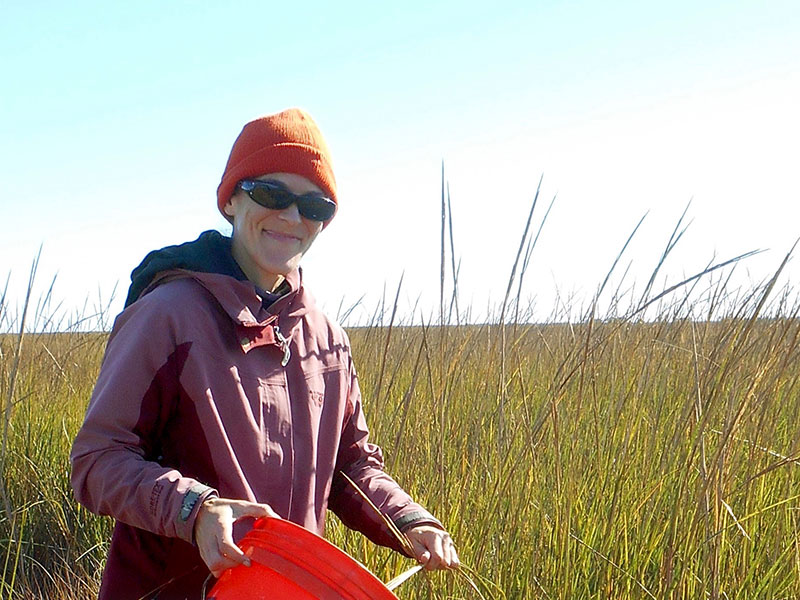
Emily Farrer is an assistant professor in the Department of Ecology and Evolutionary Biology at Tulane. She is an ecologist studying the impacts of global change on plant and microbial communities and how shifts in biodiversity can have outcomes for ecosystem services such as erosion control, nutrient filtration, and forage production. Her work spans a variety of ecosystems including wetlands, grasslands, and alpine tundra. She is currently starting up local work in Louisiana coastal marshes with the aim to understand how sea level rise and salt water intrusion affect marsh health and the influence of soil microbes and species invasions on marsh resilience.
-
Patty Ferguson-Bohnee
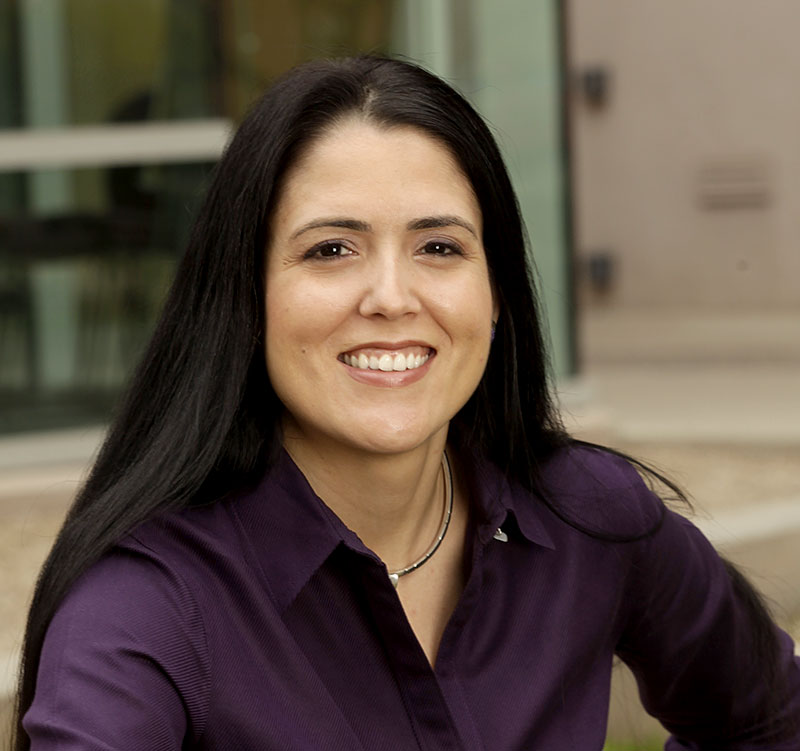
Professor Ferguson-Bohnee is the Director of the Indian Legal Clinic, Faculty Director of the Indian Legal Program, and Clinical Professor of Law, at the Sandra Day O’Connor College of Law at Arizona State University. She is a co-founder of the Native American Bar Association of Arizona and is the Past President of the National Native American Bar Association.
Professor Ferguson-Bohnee has substantial experience in Indian law, election law, voting rights, and status clarification for tribes. She has been highly involved in the federal recognition process and religious freedom for non-recognized tribal members. She also advocates for the rights of unrecognized tribes in response to environmental disasters.
Professor Ferguson-Bohnee received her Bachelors degree with Honors in Native American Studies with an Emphasis in Policy and Law from Stanford University and her Juris Doctorate from Columbia University School of Law with a certificate in Foreign and Comparative Law. She has spent several semesters studying in France, including at the Stanford Program in Paris located at the L’École Supérieure de Commerce de Paris, as a law student at Université de Paris II (Assas), and as a Fulbright Scholar at Université de Paris VII (Jussieu) where her research focused on French colonial relations with Louisiana Indians during the seventeenth and eighteenth centuries. She has also taught American Trial Skills and American Indian Law in the Common Law Program at the Université de Paris V (Descartes).
Professor Ferguson-Bohnee is a member of the Pointe-au-Chien Indian Tribe.
-
Pierre Geny
Perpetual secretary of the “Académie des Sciences D’Outre-Mer” since 2010.
Trained as a scientist, Pierre Geny has a doctorate in Geology with a specialisation in hydrology and pedology.
From 1963 to 1983, as part of a state company, he was in charge the development of French colonies overseas, like Algeria, Benin, Togo, Democratic Republic of Congo, Rwanda, Lebanon, Thailand, and Ethiopia. He edited and contributed to several technical books.
From 1983 to 1988, he was sent on various missions by the Center for the studies of the mechanization of agriculture, of rural engineering, and of forests, and organized international relations in this context.
He worked for the French National Geographic Institute for several international development projects in the Middle-East, as an advisor for the Minister of Agriculture for the realization of maps of agricultural land in France.
From 1988 to 200, the Ministry of Cooperation and Development sent him on several hydrology missions concerning international water resources and acquisition.
From 1993 to 1995, he became the advisor for Africa and French-speaking communities in the Minister of culture and French-speaking.
Pierre Geny was elected at the “Académie des Sciences D’Outre-Mer” first as a correspondent in 1996, then as a member in 2004, and finally as a secretary for life in 2010. He is a member of the Council of administration of the Academy of water.
He is co-editor of three books: French presences over-seas, and From Colonial Indochine to modern Vietnam and Environment and Rural Development: A Guide to Resource Management.
-
Jacques Legendre
Jacques Legendre studied at Amiens high school before studying Literature at the University of Lille. He obtained his bachelor’s degree in 1963, writing an Honor’s thesis on the Sahara in French literature. He obtained a Master’s in Education in French language, and then in Social Sciences. He did his military service in 1965 as a professor in Ködörösêse tî Bêafrîka (Central African Republic). He was elected a deputy in Cambrai, in Northern France, in 1973, and then became a regional counselor in the same department. In 1977, as he is serving as mayor of Cambrai, he is called to work for the French government, first as an aide for the Minister of Labor, then for the Prime Minister. Reelected as a deputy for the Nord department of France in 1986, he is later elected as the general secretary of the International Association of French Speaking Parliamentarians. He then served as the President of mayors in the Nord department, before being elected as a senator for the Commission of culture and education in 1992. In 1995, he was elected president of the Senate’s friendship group between France and West Africa, then general secretary of the parliamentary Assembly of Francophones, which led him to participate in many summits and go on different missions across the globe. As a member of the French delegation at the European Council Parliament, he presides the sub-committee of heritage first, then the committee of culture. He is also an auditor at the Institute for the Study of National Defense (1993-1994) and the auditor at the National Institute for the Study of Securities and Law. After being rapporteur of laws on French language at the Senate in 1995, he is reelected as a senator and presides over the Commission of Culture and Education (2008).
-
Amy Lesen
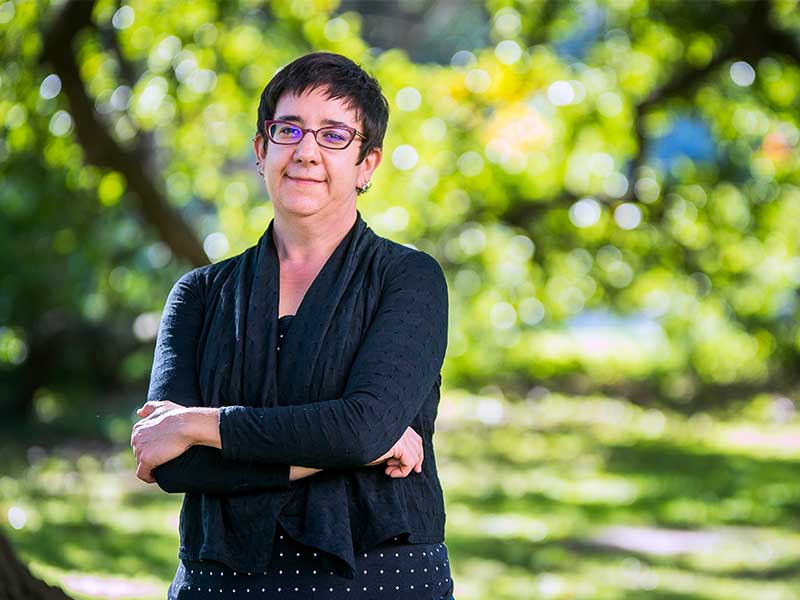
Amy E. Lesen is Research Associate Professor at the Tulane ByWater Institute at Tulane University in New Orleans. Lesen works on the coast and in urban estuaries. The overarching theme of her work is the interrelatedness between environmental and human social dynamics in coastal cities and coastal communities, and how those systems are influenced by climate and environmental change. Most of her current work focuses in New Orleans, Southeastern Louisiana, and the Gulf Coast. Lesen also does research and writing about the intersection between science and the arts, disaster resilience, informal science learning, scientific public engagement, science communication, participatory research, and interdisciplinarity. She was Associate Professor of Biology Dillard University, a small Historically Black College in New Orleans from 2007 until summer 2014. Lesen has a Bachelor of Science degree from the University of Massachusetts atherst in Marine Fisheries Biology and a PhD from the University of California at Berkeley in Integrative Biology with a concentration in biological oceanography and paleoceanography. She joined Tulane University in September 2014. Previously, she was an assistant professor at the Pratt Institute in Brooklyn, NYC from 2003 to 2007. Dr. Lesen was chair of the Biology Department at Dillard from 2009 to 2012.
-
Shane Lief
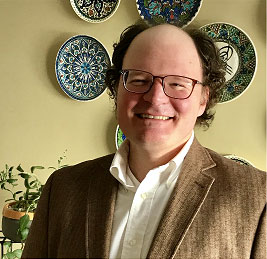
Shane Lief was born and raised in New Orleans. He has played music since childhood, leading percussion bands during Mardi Gras for the past two decades. He has MA degrees in Linguistics and Musicology (focusing on the history of Congo Square in New Orleans), and is currently completing a PhD in the Interdisciplinary Program in Linguistics at Tulane University.
-
Traditional Chief Albert P. Naquin
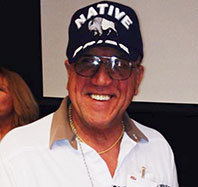
Chief Albert P. Naquin is the Traditional Chief of the Isle de Jean Charles Band of Biloxi-Chitimacha-Choctaw Indians, located in Terrebonne Parish, Louisiana. A strong advocate for his people and homeland, he has represented his Tribe on numerous occasions at the State, Federal and National level including a visit to the United Nations in 2010. He has also traveled to Alaska to gain direction from their experience during the Exxon Valdez Spill, The Grandmothers Council in Montana, and was a representative for his Tribe at the State level for education as well as a representative in laying the groundwork for the Albuquerque 2000 and Marksville 2010 Census. He has met with the Ojibwe of Minnesota to learn of the preservation of their culture and to participate in ceremony for the water that connects us. Travelling numerous times for Environmental Justice because of the unjust treatment of his people. He serves as an Adviser on the Community Resilient Team. A Constable for 12 yrs and a scout leader for 11 yrs Chief Naquin is a retired Federal employee from the Department of Interior/Mineral Management Service (MMS). He was an oil field safety inspector in the Gulf of Mexico for MMS and for Bureau of Land Management (BLM) in Colorado and New Mexico for which he had a consulting company. He is a Viet Nam veteran andbassador for the Native Americans of the Louisiana Gulf Coast. He holds an Associate degree in Life Sciences from Nichols State University, is a gourd dancer, keeper and drummer of the Miracle Drum. He works with numerous local and national advocacy groups to bring about policy change that will bring progress not only for his Tribe but for indigenous people everywhere. He is proud to represent a people of such strength and follow the example of the many in his family who were Chief before him.
-
Donna M. Pierete & Elisabeth Pierite-Mora
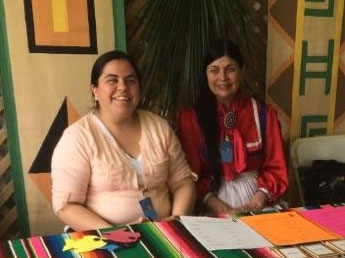
Donna M. Pierite is a language and cultural lifeways instructor for the Tunica-Biloxi Language and Culture Revitalization Program (LCRP). She is responsible for lesson-planning, teaching and directing educational assignments to promote the learning of the Tunica and Biloxi languages and culture. Donna collaborates with Tulane University linguists in the Kuhpani Yoyani Luhchi Yoroni (Tunica Language Working Group, KYLY) developing Tunica language foundational resources including linguistic texts, manuals, curricula and pedagogical materials. She is a Louisiana State certified educator who has taught more than thirty-three years in Orleans and Avoyelles Parish as well as adjunct professor of French and Spanish at Louisiana State University in Alexandria. In addition to teaching French, Spanish and English as a second language, Donna has studied and taught Tunica since the 1970’s.
Elisabeth Pierite-Mora is a language and cultural lifeways instructor for the Tunica-Biloxi Language and Culture Revitalization Program(LCRP) where she is responsible for facilitating learning of the Tunica and Biloxi languages and culture. Elisabeth collaborates with Tulane University linguists in the Kuhpani Yoyani Luhchi Yoroni (Tunica Language Working Group, KYLY) developing Tunica language foundational resources including linguistic texts, manuals, curricula and pedagogical materials. She participated in the 2016 Institute on Collaborative Language Research (CoLang), a bi-annual training workshop in field linguistics and language documentation for linguistic students, professors and members of indigenous language communities. Growing up in the Tunica, Biloxi and Choctaw traditions of her family, Elisabeth has spoken Tunica since she was a child.
-
Chris Rodning
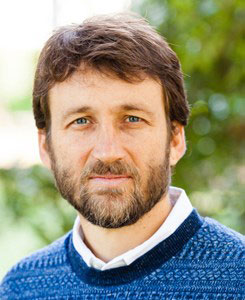
Chris Rodning is the Paul and Debra Gibbons Professor in the Department of Anthropology at Tulane University. He received an A.B. magna cum laude in anthropology from Harvard University in 1994, and a Ph.D. in anthropology from the University of North Carolina at Chapel Hill in 2004. He has published books and papers about the archaeology of the southern Appalachians and the Gulf South on topics such as the architecture and built environment of Native American towns, earthen mounds as monuments and persistent places within dynamic cultural landscapes, gender and status differentiation in Native American communities, and responses by native peoples of the Southeast to European contact and colonialism. His courses at Tulane include “Introduction to Archaeology,” “Ancient Societies,” “North American Prehistory,” “Southeast U.S. Prehistory,” “Archaeology of Cultural Landscapes,” “Disasters and Past Societies,” “Conquest and Colonialism,” and “Archaeology of Gender.”
-
Monique Verdin
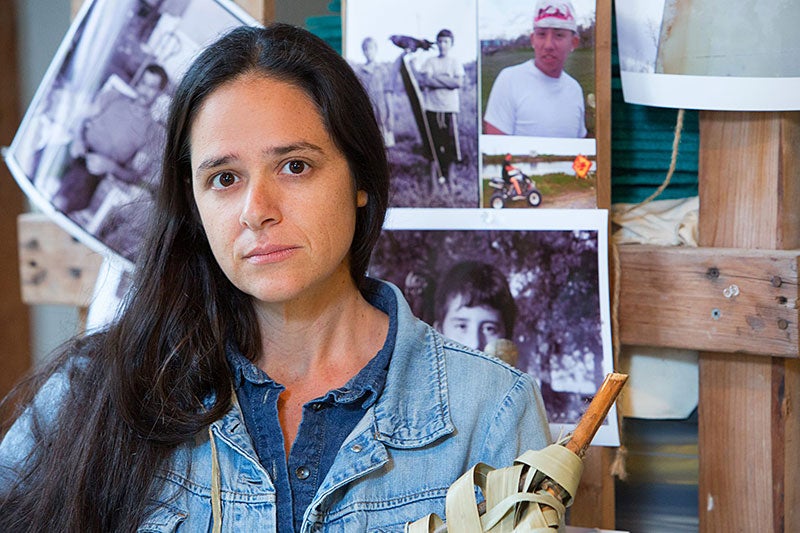
Monique Verdin is the subject/co-writer/co-producer of the award-winning documentary My Louisiana Love (2012). Her interdisciplinary work has been included in an assortment of environmentally inspired projects, including the multiplatform/performance/eco-experience Cry You One (2012-2017) as well as the publication Unfathomable City: A New Orleans Atlas (2013). Monique is a member of the United Houma Nation Tribal Council and is director of The Land Memory Bank & Seed Exchange; an experiential project engaged in building a community record through cultural happenings, strategic installations and as a digital archive to share stories, native seeds and local knowledge. Currently, Monique is a part of the Another Gulf Is Possible Collaborative core leadership circle of brown (indigenous, latinx and desi) women from Texas to Florida working to envision just and sustainable economies and vibrant communities. Her work was featured in Prospect.4 at the Historic New Orleans Collection.
-
Denis Vialou
Denis Vialou is the professor emeritus at the National Museum of Natural history in France, and a visiting professor at the University of São Paulo in Brazil. He is a member of the “Academie Nationale des Sciences d’Outre Mer” and of numerous other committees and associations in France. Dr. Vialou is a specialist in Homo sapiens prehistory in Eurasia and the Americas. He is mostly interested in symbolic behaviors, particularly to painted and engraved sites (paleolithic caves across the world). He also ran systematic digs and analyses in Brazil to compare modalities of peopling of South America to peopling of Western Europe. He has published over 300 articles, in France and abroad. He is also the author a dozen books published in France and Brazil, including La Préhistoire dans l’Univers des Formes published in several languages, and La Préhistoire, Histoire et Dictionnaire, in the Bouquins collection of Robert Laffont.
-
David J. Watt
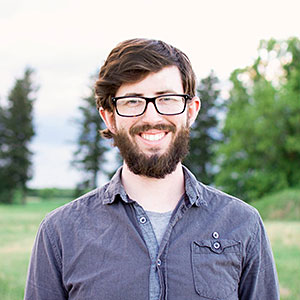
David J. Watt received his M.A. in 2016 from Tulane University in New Orleans, LA, where he is currently a Ph.D. student. His research interests include social and environmental histories of cultural landscapes. His dissertation focuses on crisis, social memory, and community responses to colonialism among Native American communities in the southeastern U.S. He currently is working for the National Center for Preservation Technology and Training (NCPTT) developing a GIS database coastal response plan for at-risk deltaic historic sites for the Mississippi River Delta Archaeological Mitigation project (MRDAM).
Staff
- Rebecca Snedeker
- Laura D. Kelley
- Regina Cairns
- Denise Frazier
- Nathalie Clarke
- Aaron Cohen
-
-
Contact
New Orleans Center for the Gulf South
Tulane University
Newcomb Hall Room 112
1229 Broadway St.
New Orleans, LA 70119
504-314-2889
New Orleans Center for the Gulf South -
Social Media:
Facebook: Nola Gulf South
Facebook: Music Rising at Tulane
Twitter: @NOCGS
Instagram: Nola Gulf South
Tumblr: New Orleans Center for the Gulf SouthPhoto credit: Dr. Laura D. Kelley

